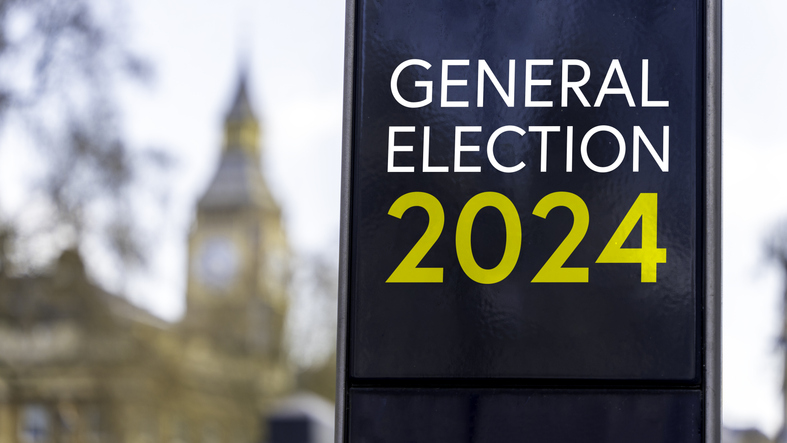
As the CEO of ExpoPlatform, a UK-based event technology provider, we work with event organisers all over the world.
What you might not know is I was born and brought up in Ukraine. Despite being out of the country, I’m very personally connected to my homeland through family, friends and colleagues. A lot of our staff at ExpoPlatform have relocated within Ukraine but are still working as usual. In fact, in some ways, this situation has actually strengthened us as a company, but it’s impossible to think only of business at a time when a humanitarian and human crisis like this is happening.
Like me, you’ve probably seen the pictures from places like Bucha and Mariupol, where people were raped and murdered and forced to cower in basements while their homes were ravaged. These are things we all wanted to believe could never happen again.
We’ve all been touched by this, and we will all continue to be touched by this in psychological and economic terms. The war will fundamentally change lives now and for many years to come.
Above all, there’s the human cost. Tens of thousands of soldiers and civilians have already lost their lives. Millions have been forced to flee their homes – if the war continues, it’s estimated 10-15 million Ukrainians could eventually leave the country to seek refuge abroad.
There’s also, of course, a huge economic cost – the World Bank forecasts that Ukrainian GDP could fall by 45% in 2022. Many industries will be impacted, not least by the concern over energy supply. Natural gas prices in Europe have already jumped 60% since Russia started preparing its invasion. And oil has been trading at about $120 per barrel.
With doubts over future supply, we’ll very likely see investment in renewable sources of energy increasing. In the short term, we can see countries are also switching back to coal, which will have a negative impact on global ecology.
As an industry, we should expect an increase in the number of energy related events as the investment in renewable sources of energy will rise. As renewables come down in price and the barrier to entry in this market will be lower, we might see an increase in start-ups in this field.
The events industry will also play a big role in restructuring the food industry as there will continue to be significant disruption in this area. Ukraine is an agricultural superpower which could meet the food needs of 600 million people. However, the war has already seriously affected Ukraine’s first place in the world in exports of sunflower, and its important role in corn, wheat and potato production. Ukraine and Russia together produce about 30 percent of global wheat, which is why spot market prices are up roughly 40 percent.
Two possible solutions for countries which import these foodstuffs are to secure alternative suppliers or to seek product replacement such as switching sunflower oil for rapeseed oil. Both will be reflected in events in our industry where businesses will look for opportunities to build new supply chains.
Ukraine is also famous for its natural resources. It has huge iron and steel industries and reserves of iron, uranium and titanium ore – the effect of this was seen when metal commodities rose 10-15 percent in the first week of the conflict.
In short, Ukraine is important. If it wasn’t, Putin wouldn’t have invaded it. With Covid, we had a crisis in demand. With this situation, we’re likely to have a crisis in supply, adding to the volatility in the market and forcing us to look again at where we get things from in terms of energy, food, and both natural and human resources.
At ExpoPlatform, we are well aware of how important Ukrainian IT professionals are. Especially in the light of Covid’s impact on the digitalisation of the world economy and our industry in particular, Ukraine’s importance as the biggest IT hub in Eastern Europe – with more than 500,000 people working in the sector – can not be underestimated.
In terms of commercial relationships, we have lost many things during this war, among them consumer markets, staff, access to suppliers and, most importantly for the future, a total loss of trust, which means there will need to be a greater focus on finding trusted partners elsewhere. How can businesses feel comfortable and secure in dealing with Russia when we see that laws and regulations can be changed overnight? We must also recognise the lack of will from the Russian side to stay connected to the international community.
What can we do in response? Many exhibition organisers, including Informa, IMEX Clarion, Messe Frankfurt, Messe Dusseldorf and others have already stood up and banned Russian exhibitors from participating in their events. Associations such as UFI AEO, MPI and ICCA have made their position clear by suspending Russian members and pledging not to enter into any new agreements while the invasion continues.
As we move forward, events will play a huge role in providing platforms for the international business community to build and strengthen relationships, discover opportunities, and help our exhibitors and sponsors to survive by finding new suppliers and product replacements.
All of us in the events industry can now support Ukraine by helping companies that have connections, bases or employees there. By working with these enterprises we can help the Ukrainian economy to rebuild faster.
We can also create events inviting Ukrainian companies to participate at cost or at discounted prices providing the opportunity for them to showcase their products and reach out to a new audience of potential buyers.
During Covid the events industry played a huge role by providing digital platforms for people who could not otherwise connect or meet in person. Now we face the next challenge where we can heed the wake up call, stand up as an industry and meet the situation together as one.


![Celebrating the best of the Scottish events industry at the 2024 E Awards 12[1]](https://eventsbase.co.uk/wp-content/uploads/2024/06/121.png)

